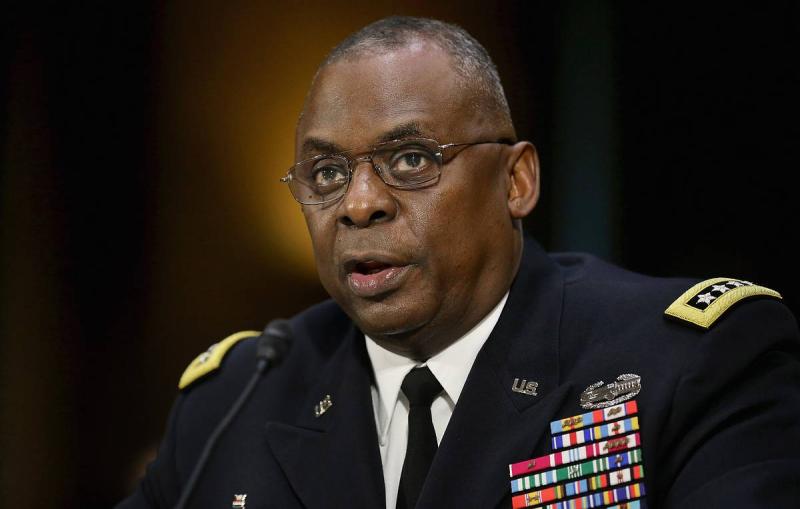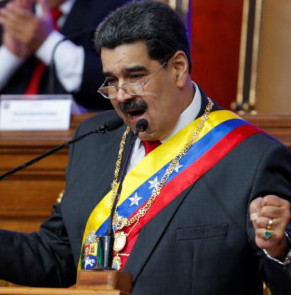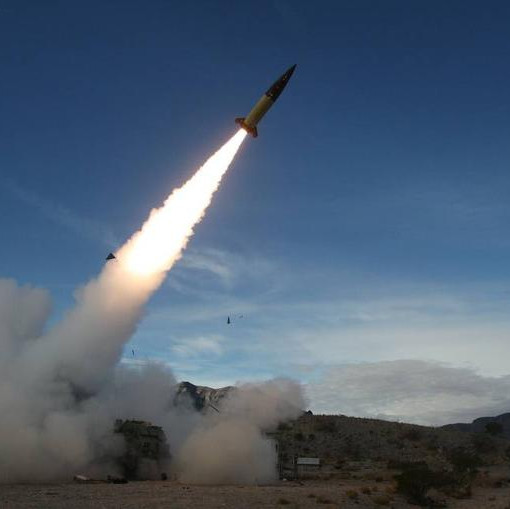
© Chip Somodevilla/Getty Images/TASS
A meeting of defense ministers of 30 NATO member states took place in Brussels on October 12 to 13. On Wednesday, the sixth meeting of the US-led contact group on military assistance to Ukraine in the Ramstein format was attended by representatives of over 50 countries. US Secretary of Defense Lloyd Austin and Chairman of the Joint Chiefs of Staff (JCS) General Mark Milli have engaged in discussing Ukraine-related issues the West faces.
As The Washington Post (WP) wrote the day before, members of the Ramstein international group came to Brussels to discuss the situation following Russia's massive missile strikes on Ukrainian territory. In particular, the WP says that the Zelensky government's long-standing calls on its allies to supply more advanced air defense systems and longer-range weapons have intensified after a series of Russian strikes on cities and key infrastructure of Ukraine.
At the Ramstein meeting, Ukrainian Defense Minister Alexey Reznikov said supplying Kiev with air defenses topped the agenda this time. He recalled Germany’s announcement to provide Kiev with first of the four IRIS-T SLM systems pledged by Berlin. Reznikov also expected the United States to transfer its NASAMS anti-aircraft missile system to Kiev "in the nearest future," as National Security Council Coordinator for Strategic Communications at the White House John Kirby said the day before.
Notably, October 10 saw US President Joe Biden have a telephone conversation with Zelensky and promise to keep supporting Kiev with everything it needs, including advanced air defense systems. And the very next day, NATO Secretary General Jens Stoltenberg gave a briefing to say the allies need to take pains so that Ukraine does not lose in the conflict. In his opinion, it will be "not only a big defeat for Ukrainians," but also "a defeat and a threat to all of us, because it will make the world more dangerous and vulnerable." To prevent such a scenario, NATO members have already provided Kiev with "unprecedented support" and will keep doing so in the future, Stoltenberg assured.
Amid Russia’s special military operation in Ukraine, the United States and its NATO allies are tirelessly pumping weapons into the Kiev regime worth tens of billions of dollars. Just a reminder: late last month, the head of the White House approved another military assistance package amounting to $1.1 billion, which, among other things, will include 18 HIMARS multiple launch rocket systems. And earlier in September, just before the Ramstein 5 meeting in Germany, Washington decided to allocate $675 million in aid to the Kiev regime, namely HARM anti-radar missiles, 105 mm M101 howitzers and ammunition for them.
Moscow, for its part, has repeatedly stated that Western weapons supplies to Ukraine can only protract the conflict, with relevant vehicles being legitimate targets for the Russian army. Thus, on October 11, press secretary of the Russian president Dmitry Peskov told reporters that NATO’s intention to proceed with supplying weaponry prolongs the conflict, making it “as painful as possible for the Ukrainian side. For the time being, this is exactly what we see”. He also commented upon the words by former chairman of the US Joint Chiefs of Staff Admiral Michael Mullen, who urged to take every effort to bring Russia and Ukraine to the table.
"We do not know whether the current administration, the current US military chiefs heed to their former colleagues. We don't know that. So far, we hear official statements from the current US administration and military about their intention to continue supplying weapons [to Kiev] and to actually prolong this conflict," Vladimir Putin's Press Secretary said. Russia will keep achieving its objectives, though.
In a fresh pursuit of NATO Secretary General’s statement of October 11, Deputy Chairman of the Russian Security Council Dmitry Medvedev branded such moves "the fastest way to escalate the conflict in Ukraine to the irreversible consequences of a world war." He also considered Jens Stoltenberg's words that Russia's victory would mean a defeat for everyone "a direct confirmation that the bloc participates in the war against our country." "An honest Norwegian chap has made a confession at last," Medvedev wrote on his Telegram channel.
The West, and particularly the United States, doesn’t hear what Moscow says. The Ramstein 6 meeting in Brussels is a clear proof of that. In his opening speech, the US Secretary of Defense said Russia's recent missile strikes had further boosted the Western countries’ readiness to provide further assistance to Kiev. "Our resolve and steadiness of purpose has only been strengthened," Lloyd Austin said. According to the Pentagon chief, the total amount of American military aid to Kiev under Joe Biden has reached $16.8 billion.
In turn, the German Defense Ministry said Berlin would allocate a new aid package to Ukraine, including the MARS II multiple-launch rocket systems and PzH 2000 self-propelled artillery pieces. Kiev is assumed to get all of this in the next few weeks.
Jens Stoltenberg urged his NATO colleagues to step up supplies of air defense systems to Zelensky, calling it vital amid Russia’s ongoing strikes. "Allies have provided air defense, but we need even more. We need different types of air defense,” the alliance Secretary General told journalists, mentioning “short-range, long-range air defense systems to take ballistic missiles, cruise missiles, drones."
However, NATO countries are faced with challenges of finding enough air defense systems to meet the needs of Ukraine, Britain’s Financial Times reported citing unidentified Western officials. "Countries have already provided some [air defense systems], but there is a shortage of production capacity," an interlocutor said. He added that some NATO members themselves were facing years of delays for their own air defense platforms.









